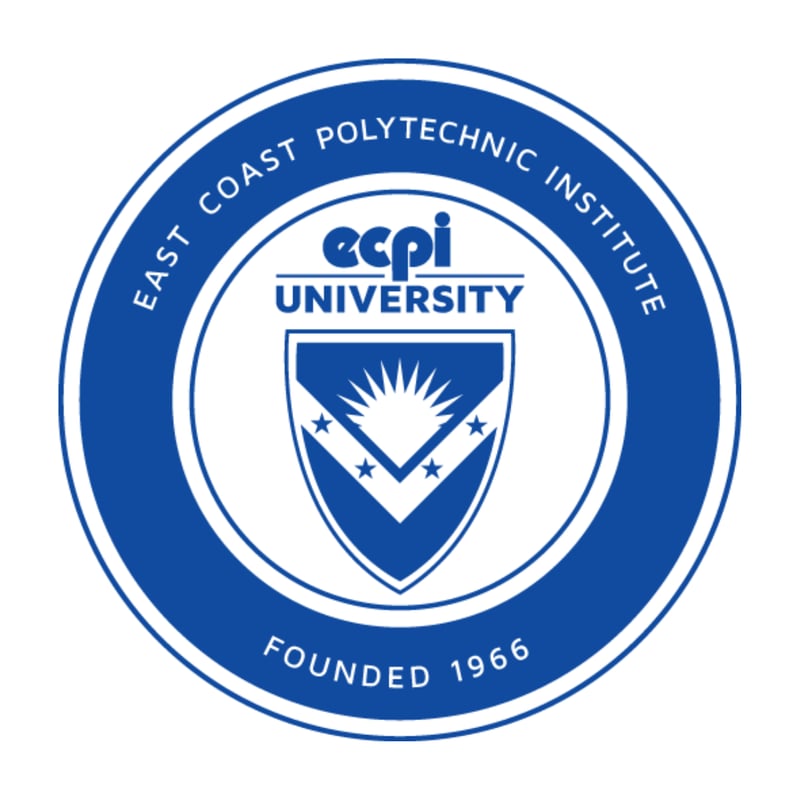
Financial aid (may be available)

No cost info

Financial aid (may be available)

Financial aid (may be available)

Financial aid (may be available)

Financial aid (may be available)

Financial aid (may be available)

Financial aid (may be available)

Financial aid (may be available)

No cost info

No cost info

Financial aid (may be available)

Financial aid (may be available)

Financial aid (may be available)
American Military University (AMU) offers a logistics management certificate at the graduate level. It provides in-depth study of logistics and supply chain management with consideration of global impacts.
AMU’s online logistics certificate emphasizes transportation factors related to logistics, especially the maritime industry. The curriculum covers topics such as:
Transportation policy and planning
Transportation management and economics
Port and terminal operations
This program is an appropriate choice for those who wish to increase their knowledge of logistics and supply chain management without committing to a full degree program.
No cost info
No cost info
The online Logistics and Supply Chain Management Certificate from CCU will help you gain a deeper understanding of the processes and fundamentals within supply chain and inventory management, including purchasing and inbound logistics; material handling in distribution centers; warehousing and warehouse management; financial and inventory controls; transportation and distribution; and reverse and global logistics.
No cost info

$2,730 total

No cost info
No cost info
Learn about the components of supply chains including supply chain networks, supply chain facilities, transportation, and inventory management as well as how emerging technologies affect them with our Supply Chain Fundamentals Certificate. These courses are perfect for learners seeking to enter the supply chain profession, as well as those who are seeking to enter supervisory roles or enter a new domain within the supply chain.
No cost info
This certificate program provides a foundation in supply chain and logistics management from both a U.S. as well as global perspective, preparing participants for professional careers with manufacturers and distributors, transportation carriers, and logistics service providers.
No cost info

Financial aid (may be available)

$2,625 total
Are you interested in a career in logistics? Do you want to find the best logistics classes in Seattle? Look no further! In this blog post, we will explore the world of logistics and guide you in finding the perfect class to kickstart your career. Whether you are a recent high school graduate or looking for a career change, logistics can offer exciting opportunities. Let's dive in!

Logistics is the backbone of many industries. It involves the planning, coordination, and management of the flow of goods, services, and information from the point of origin to the point of consumption. From transportation and warehousing to inventory management and supply chain optimization, logistics professionals play a crucial role in ensuring the smooth operation of businesses.
Before diving into logistics classes, it is essential to understand what logistics entails. Here are a few key points:
Supply Chain Management: Logistics is an integral part of supply chain management. It involves the movement and storage of raw materials, inventory, and finished products.
Efficiency and Cost Reduction: Logistics aims to optimize operations, reduce costs, and improve efficiency. It involves strategic planning, coordination, and execution of various activities.
Transportation and Warehousing: Logistics professionals manage transportation networks, select carriers, negotiate contracts, and ensure the efficient movement of goods. They also oversee warehouse operations, including inventory management and order fulfillment.
To excel in the field of logistics, proper training is essential. While a college degree is not always required, completing logistics classes can provide you with the necessary skills and knowledge. Here are a few training requirements to consider:
Logistics Certification Programs: Many vocational schools and community colleges offer logistics certification programs. These programs provide comprehensive training in areas such as supply chain management, transportation, and inventory control.
On-the-Job Training: Some companies may offer on-the-job training programs for entry-level logistics positions. These programs typically combine classroom instruction with hands-on experience to give you a well-rounded understanding of the industry.
Continuing Education: Logistics is a constantly evolving field. It is crucial to stay updated with the latest industry trends and advancements. Continuing education programs and professional development courses can help you enhance your skills and knowledge.
When searching for logistics classes in Seattle, it is essential to consider a few factors to ensure you find the best fit for your needs. Here are some things to look for:
Accreditation: Ensure that the class you choose is accredited by a reputable organization. Accreditation ensures that the program meets certain quality standards and is recognized by employers in the industry.
Curriculum: Review the class curriculum to ensure it covers all the essential topics in logistics. Look for classes that offer a comprehensive understanding of supply chain management, transportation, warehousing, and inventory control.
Hands-on Experience: Practical experience is invaluable in the field of logistics. Look for classes that offer hands-on training or internships opportunities. This will give you the chance to apply your knowledge in real-world scenarios.
Industry Connections: Classes that have industry connections can provide valuable networking opportunities. Look for classes that offer guest speakers, industry visits, or partnerships with local businesses in the logistics field.
Logistics classes are designed to provide you with a solid foundation in the field. Here's what you can expect from the day-to-day class experience:
Classroom Instruction: You will attend lectures and participate in discussions to learn the theoretical aspects of logistics. This will include topics such as supply chain management, transportation modes, inventory control, and logistics technology.
Hands-on Activities: Many logistics classes incorporate hands-on activities to help you apply your knowledge. This may include case studies, simulations, and group projects that simulate real-world logistics scenarios.
Industry Guest Speakers: Some classes may invite guest speakers from the logistics industry to share their experiences and insights. This can provide valuable industry perspectives and help you understand the practical aspects of the field.
Classroom Discussions: Class discussions allow you to engage with your peers and share ideas and experiences. This collaborative environment fosters learning and encourages critical thinking.
Upon completing your logistics class, you may have the opportunity to obtain a certification. While the certification process may vary depending on the program, here are some general steps:
Eligibility: Ensure that you meet the eligibility requirements for the certification. This may include completing the required coursework and fulfilling any work experience requirements.
Application: Submit your certification application along with any necessary documentation, such as transcripts and proof of work experience.
Exam: Prepare for and pass the certification exam. The exam will test your knowledge and understanding of logistics principles and practices.
Certification: Once you pass the exam, you will receive your logistics certification. This certification demonstrates your expertise in the field and can enhance your job prospects.
After completing your logistics class and obtaining certification, you'll be ready to embark on your career in logistics. Here are a few tips on how to find related jobs:
Online Job Platforms: Utilize online job platforms such as Indeed, LinkedIn, and Glassdoor to search for logistics positions. These platforms allow you to filter job listings based on location, experience level, and specific job requirements.
Networking: Networking is a powerful tool in any industry. Attend industry events, join professional organizations, and connect with professionals in the logistics field. They may have insights into job opportunities or be able to provide recommendations.
Company Websites: Visit the websites of logistics companies in your area. Many companies list their job openings on their websites, allowing you to apply directly.
Staffing Agencies: Consider reaching out to staffing agencies that specialize in logistics. These agencies can help match you with job opportunities that align with your skills and experience.
Once you have established a career in logistics, there are several other classes you can take to further enhance your skills and knowledge. Here are a few options:
Advanced Supply Chain Management: Take an advanced supply chain management class to gain a deeper understanding of the intricacies of managing a global supply chain.
Lean Six Sigma: Lean Six Sigma is a methodology aimed at improving operational efficiency and reducing waste. Taking a Lean Six Sigma class can help you become a process improvement expert.
Logistics Technology: As technology continues to advance, logistics professionals need to stay updated with the latest tools and software. Consider taking a logistics technology class to learn about emerging technologies in the field.
Leadership and Management: As you progress in your career, developing leadership and management skills becomes crucial. Taking classes in leadership and management can help you prepare for leadership roles in the logistics industry.
If you're looking for logistics classes in Seattle, Dreambound can help you find the perfect program to kickstart your career. Dreambound is the largest platform for students to find vocational training programs, such as logistics classes. Their mission is to provide all the information students need to find the perfect class. Visit Dreambound today and start your journey towards a rewarding career in logistics or explore other vocational classes and career options.
Check out Dreambound's extensive guides focusing on the unique challenges and requirements for each city in the US. For more detailed information, see some of our other guides below.
If you're exploring various professional paths, Dreambound has in-depth guides to help assist you. Explore a few of these resources below.
Dreambound's platform allows prospective students to find the right educational program for them through searching, filtering, and connecting with our extensive selection of career & technical education partners.
Dreambound has over 70 programs across healthcare, technology, business, and industrial trades. This includes programs such as Medical Billing, Cybersecurity, and welding.
Some of our schools offer financial aid for those who qualify. Many others offer payment plans, where you can pay the cost of class over time.
Yes, Dreambound offers many online programs. On Dreambound's search, you can filter by online, in-person, and hybrid (part online, part in-person).
Dreambound is completely free for you to use! We are supported by schools and organizations who pay to advertise on our website, so we can offer all of our career resources for free.